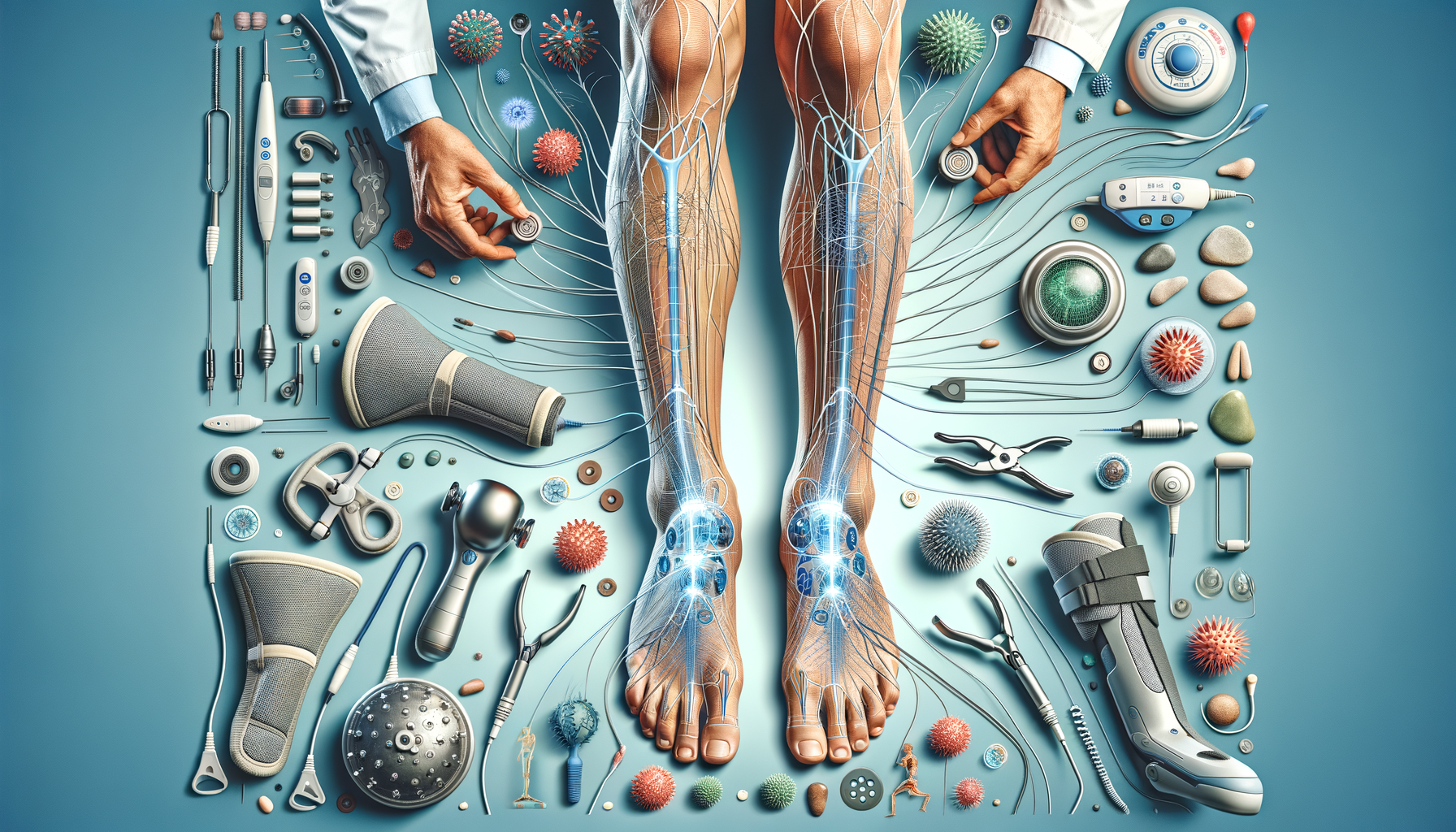Understanding Neuropathy: A Brief Overview
Neuropathy, a condition characterized by nerve damage, often affects the legs and feet, leading to symptoms such as pain, tingling, and numbness. This condition can significantly impact daily life, making it essential to explore effective treatments. Neuropathy can result from various causes, including diabetes, chemotherapy, and physical injury. Understanding the underlying cause is crucial for selecting the most appropriate treatment strategy. The symptoms of neuropathy can vary, but they often include a sensation of pins and needles, burning pain, and muscle weakness. These symptoms can range from mild to debilitating, affecting mobility and overall quality of life.
It’s important to note that neuropathy is not a single disease but rather a symptom of various underlying conditions. Therefore, a comprehensive approach to treatment is necessary, focusing on managing symptoms and addressing the root cause. Early diagnosis and intervention can prevent further nerve damage and improve outcomes. Regular check-ups and monitoring are vital for those at risk, particularly individuals with diabetes, as they are more susceptible to developing neuropathy.
Medical Treatments for Neuropathy
Medical treatments for neuropathy aim to alleviate symptoms and improve nerve function. One common approach is the use of medications, including pain relievers, antidepressants, and anti-seizure drugs. These medications can help manage pain and discomfort associated with neuropathy. However, they may come with side effects, so it’s important to discuss options with a healthcare provider. In some cases, topical treatments like creams or patches containing capsaicin or lidocaine may be recommended for localized pain relief.
In addition to medications, physical therapy can be beneficial for managing neuropathy symptoms. Physical therapy focuses on improving strength, balance, and coordination, which can help reduce the risk of falls and improve mobility. A physical therapist can design a personalized exercise program tailored to the individual’s needs and abilities.
For severe cases of neuropathy, more advanced treatments such as nerve blocks or electrical nerve stimulation may be considered. These procedures aim to interrupt pain signals and provide relief. It’s essential to work closely with a healthcare team to determine the most appropriate treatment plan based on the severity of symptoms and overall health.
Lifestyle Modifications and Home Remedies
In addition to medical treatments, lifestyle modifications can play a significant role in managing neuropathy in the legs and feet. A healthy diet rich in vitamins and minerals can support nerve health and reduce symptoms. Foods high in omega-3 fatty acids, such as fish and flaxseeds, are particularly beneficial. Maintaining a healthy weight can also alleviate pressure on the nerves and improve mobility.
Regular exercise is another crucial component of managing neuropathy. Activities like walking, swimming, or yoga can enhance circulation, strengthen muscles, and improve overall well-being. It’s important to choose exercises that are low-impact and suitable for the individual’s fitness level. Consulting with a healthcare provider or physical therapist can help in designing a safe and effective exercise plan.
Home remedies such as warm baths, massage, and the use of essential oils may provide temporary relief from neuropathy symptoms. These methods can help relax muscles, improve circulation, and reduce stress, which can exacerbate symptoms. However, they should be used in conjunction with other treatments and not as a sole therapy.
Alternative and Complementary Therapies
Alternative and complementary therapies can be valuable additions to traditional medical treatments for neuropathy. Acupuncture, for instance, has been shown to help reduce pain and improve nerve function in some individuals. This ancient practice involves inserting thin needles into specific points on the body to stimulate healing and balance energy flow.
Herbal supplements and vitamins, such as alpha-lipoic acid and vitamin B12, are also commonly used to support nerve health. However, it’s important to consult with a healthcare provider before starting any new supplements, as they may interact with other medications or have side effects.
Mind-body techniques like meditation, mindfulness, and biofeedback can help manage the emotional and psychological aspects of living with neuropathy. These practices can reduce stress, enhance relaxation, and improve coping skills, contributing to overall well-being. Combining these therapies with traditional treatments can provide a holistic approach to managing neuropathy.
Preventing Neuropathy: Tips and Strategies
Prevention is a key aspect of managing neuropathy, especially for individuals at risk due to conditions like diabetes. Regular monitoring of blood sugar levels and maintaining good glycemic control can significantly reduce the risk of developing neuropathy. It’s also important to manage other health conditions that may contribute to nerve damage, such as high blood pressure and cholesterol.
Wearing appropriate footwear is crucial for protecting the feet and preventing injuries that could lead to neuropathy. Shoes should provide adequate support, cushioning, and a proper fit. Regular foot inspections can help detect any issues early, allowing for prompt intervention.
Adopting a healthy lifestyle, including a balanced diet, regular exercise, and avoiding smoking and excessive alcohol consumption, can support nerve health and reduce the risk of neuropathy. Staying informed about the condition and seeking regular medical care are essential for early detection and effective management.








